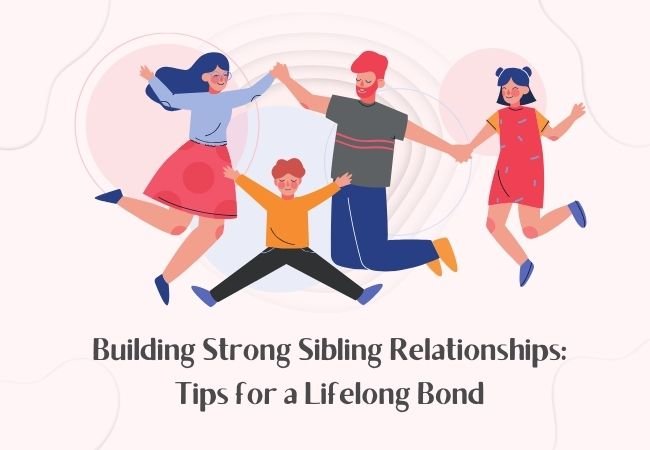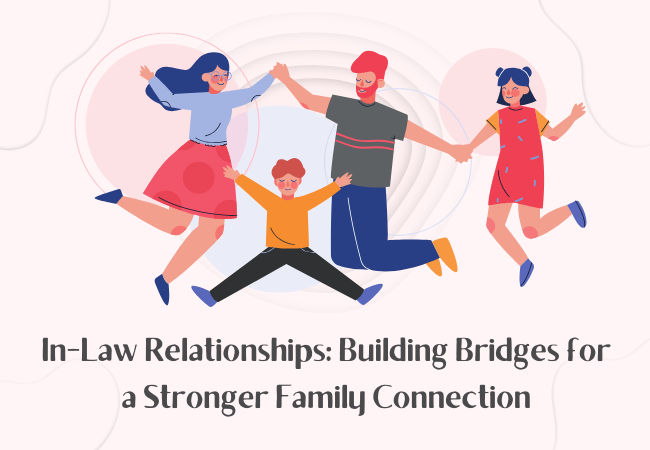Building Strong Sibling Relationships : Tips for a Lifelong Bond
Learn how to build strong sibling relationships with effective tips. Discover strategies to foster a lifelong bond and create a supportive family environment.
Sibling relationships can be some of the most important and long-lasting connections in our lives. When nurtured properly, these bonds can provide support, friendship, and understanding that lasts a lifetime. This guide will offer practical tips and strategies to help foster strong sibling relationships in your family.

Why Sibling Relationships Matter
Before we dive into the tips, let’s consider why sibling relationships are so important:
- Lifelong companionship
- Emotional support system
- Shared experiences and memories
- Learning ground for social skills
- Potential for lifelong friendship
Start Early: Laying the Foundation
Building strong sibling relationships begins early. Here are some tips for parents of young children:
1. Prepare Older Siblings for New Arrivals
- Involve older children in preparations for the new baby
- Explain the baby’s needs and how they can help
- Emphasize their important role as a big brother or sister
2. Encourage Bonding from the Start
- Let older siblings help with baby care (under supervision)
- Create opportunities for positive interactions
- Take photos of siblings together to reinforce their bond
3. Maintain Individual Relationships
- Spend one-on-one time with each child
- Recognize each child’s unique qualities and interests
- Avoid comparisons between siblings
Fostering Positive Interactions
As children grow, you can encourage positive sibling relationships through these strategies:
1. Teach Conflict Resolution Skills
- Model effective communication
- Encourage children to express their feelings
- Teach problem-solving techniques
2. Promote Teamwork
- Assign chores that require cooperation
- Engage in family activities that involve all siblings
- Celebrate achievements as a family
3. Encourage Empathy
- Help children understand each other’s perspectives
- Teach them to recognize and respond to others’ emotions
- Praise acts of kindness between siblings
Dealing with Sibling Rivalry
Sibling rivalry is normal, but it can be managed. Here are some strategies:
1. Avoid Comparisons
- Recognize each child’s unique strengths
- Avoid labeling children (e.g., “the smart one,” “the athletic one”)
- Celebrate individual achievements without diminishing others
2. Establish Fair Rules
- Create clear family rules that apply to everyone
- Be consistent in enforcing these rules
- Involve children in creating rules when appropriate
3. Give Each Child Attention
- Schedule regular one-on-one time with each child
- Show interest in each child’s activities and interests
- Ensure each child feels heard and valued
Creating Shared Experiences
Shared experiences can strengthen sibling bonds. Try these ideas:
1. Family Traditions
- Create traditions that involve all siblings
- Examples: weekly game nights, annual camping trips, holiday rituals
2. Shared Responsibilities
- Assign tasks that require siblings to work together
- Rotate responsibilities to ensure fairness
3. Family Projects
- Engage in projects that involve the whole family
- Examples: gardening, home improvements, community service
Nurturing Relationships as Siblings Grow
As children become teenagers and adults, sibling relationships may change. Here’s how to maintain strong bonds:
1. Respect Individual Paths
- Encourage siblings to support each other’s choices
- Avoid forcing relationships; let them develop naturally
2. Facilitate Communication
- Encourage regular check-ins between siblings
- Use technology to stay connected if siblings live apart
3. Create Adult Sibling Traditions
- Encourage siblings to maintain connections as adults
- Examples: annual siblings-only trips, regular video chats
Addressing Challenges in Sibling Relationships
Even with best efforts, challenges can arise. Here are some tips for dealing with difficult situations:
1. Sibling Bullying
- Take all instances of bullying seriously
- Intervene immediately and consistently
- Seek professional help if bullying persists
2. Favoritism (Real or Perceived)
- Be aware of your own biases
- Ensure equal treatment and opportunities
- Address feelings of favoritism openly and honestly
3. Significant Age Gaps
- Create opportunities for shared experiences despite age differences
- Encourage older siblings to mentor younger ones
- Help younger siblings understand and respect older siblings’ need for independence
The Role of Parents in Sibling Relationships
Parents play a crucial role in fostering strong sibling bonds:
1. Model Healthy Relationships
- Demonstrate respect and kindness in your own relationships
- Show how to resolve conflicts peacefully
- Apologize when you make mistakes
2. Create a Positive Family Environment
- Encourage open communication
- Foster a sense of family unity
- Celebrate each family member’s uniqueness
3. Avoid Taking Sides
- Stay neutral in sibling conflicts when possible
- Encourage siblings to work out their own disagreements
- Intervene only when necessary for safety or fairness
Long-Term Benefits of Strong Sibling Relationships
Investing in sibling relationships can have lifelong benefits:
- Emotional support throughout life
- Shared caregiving responsibilities for aging parents
- Extended family connections for future generations
- Lifelong friendship and companionship
Conclusion
Building strong sibling relationships takes time, effort, and patience, but the rewards are immeasurable. By fostering positive interactions, encouraging empathy, and creating shared experiences, you can help your children develop bonds that will last a lifetime.
Remember, every family is unique, and what works for one may not work for another. Be patient with the process and flexible in your approach. With consistent effort and love, you can help your children build relationships that will support and enrich them throughout their lives.
Sibling relationships are a gift – nurture them, celebrate them, and watch as they grow into some of the most important connections your children will ever have.
For more information and guide, visit usaparentingtips.com






